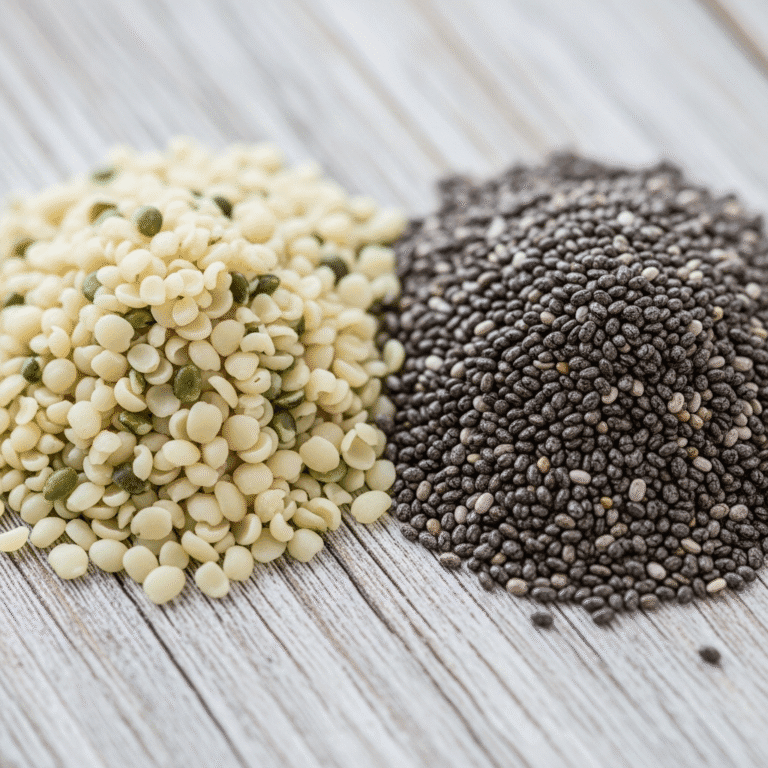FREE SHIPPING OVER $50
This Nut Butter Has the Same Protein as Peanut Butter—But Twice the Fiber and Way More Benefits

Peanut butter holds a cherished spot in pantries across the country. It’s the ultimate comfort food, a reliable source of protein, and a quick, easy snack. But what if we told you there’s a quiet powerhouse on the market that offers everything you love about peanut butter—the comparable protein content, the creamy texture—but with a significant nutritional upgrade? It’s true. A simple swap can dramatically improve your nutrition and deliver tangible results for weight loss and gut health.
This incredible alternative has been flying under the radar, but its superior fiber content and unique micronutrient profile make it the clear winner for anyone serious about wellness. While peanut butter is good, this nut butter is great. We’re revealing the identity of this fiber champion and breaking down exactly how it offers way more benefits, making it the essential addition to your diet for improved digestion, better blood sugar control, and sustained energy.
The Fiber Factor: Why Twice the Fiber Changes Everything
The secret weapon of this superior spread lies in its fiber content. While a typical two-tablespoon serving of conventional peanut butter offers around 2 grams of fiber, this nutritional champion provides 4 grams or more, instantly giving you twice the fiber. This isn’t just a minor difference; it’s a metabolic game-changer.
Fiber is perhaps the most underrated component of modern nutrition. For weight loss, it acts on three key fronts: it increases satiety, stabilizes blood sugar, and improves gut health. When you consume food rich in fiber, it slows down the rate at which sugars and fats are absorbed into the bloodstream. This prevents the rapid glucose spikes that trigger insulin surges, which, in turn, signal the body to store fat. By choosing a nut butter with twice the fiber, you are essentially slowing down your digestion, maintaining stable energy, and naturally reducing your overall calorie intake because you feel fuller for longer.
The Champion Revealed: Almond Butter
The unsung hero of the nut butter world is Almond Butter.
A standard two-tablespoon serving of natural almond butter offers roughly 6-7 grams of protein (comparable to peanut butter’s 7-8 grams) but delivers 4 grams of fiber, putting it far ahead of its peanut counterpart. Furthermore, the difference in micronutrients truly demonstrates why this is a massive upgrade for your long-term health and longevity.
Way More Benefits: Almond Butter’s Nutritional Superpowers
The fiber is just the starting point. Almond butter packs a significant punch in vitamins and supplements that directly support metabolism, cardiovascular health, and bone density, giving you way more benefits than the basic protein and fat found in peanut butter.
1. Magnesium (The Metabolic Master)
Almond butter is an excellent source of Magnesium, a mineral involved in over 300 enzyme reactions in the body. For fitness and weight loss, Magnesium is critical because it helps convert food into energy, aids in muscle and nerve function, and is essential for protein synthesis. Maintaining optimal Magnesium levels is also strongly linked to improved insulin sensitivity and better blood sugar control, making it a key ally in the fight against stubborn abdominal fat.
2. Vitamin E (The Antioxidant Defender)
Almond butter is richer in Vitamin E, a powerful fat-soluble antioxidant. Vitamin E is essential for protecting the body’s cells from oxidative stress and damage caused by free radicals. This is crucial for longevity and wellness, as chronic inflammation and cellular damage accelerate aging and contribute to almost all chronic diseases. Including this high-antioxidant nut butter in your diet acts as a daily defense against cellular wear and tear.
3. Calcium (Bone Density Builder)
While dairy is the traditional source of calcium, almonds are a fantastic non-dairy source. This is especially important for women and older adults looking to maintain bone density and prevent osteoporosis. Since almond butter is often consumed daily, it provides a consistent, simple boost to this critical mineral, contributing significantly to long-term physical health.
4. Iron (Energy and Fatigue Fighter)
Almond butter provides a good amount of plant-based Iron. Adequate iron levels are necessary for transporting oxygen throughout the body. Iron deficiency is a common cause of chronic fatigue and low energy, which can derail any weight loss attempt. Boosting your iron through sources like almond butter supports sustained energy and overall vitality.
The Gut Health Connection: Fiber and the Microbiome
The higher fiber content in almond butter is a gift to your gut health. It provides the necessary bulk for smooth digestion (helping you avoid uncomfortable bloating and constipation) and, more importantly, acts as a prebiotic.
Prebiotics are the non-digestible food components that fuel your beneficial gut bacteria. When your gut bacteria ferment this fiber, they produce short-chain fatty acids (SCFAs), such as butyrate. Butyrate is a primary energy source for the cells lining your colon and is deeply involved in regulating appetite and inflammation. A healthy, diverse gut microbiome is increasingly recognized as a cornerstone of weight loss and overall wellness. By choosing a nut butter with twice the fiber, you are literally feeding your gut health and improving your body’s entire metabolic command center.
Making the Smart Swap: Choosing and Using Almond Butter
Transitioning from peanut butter to almond butter is an easy, low-effort way to upgrade your daily nutrition. However, not all jars are created equal.
How to Choose the Best Almond Butter
- Read the Ingredients: The best almond butter should contain only one or two ingredients: Almonds (and possibly salt). Avoid jars that list cane sugar, added oils (like palm or sunflower oil), or syrups.
- Opt for Unsalted: If possible, choose the unsalted variety. While salt is an electrolyte, most people consume too much, and the natural flavor of the almonds is often enough.
- Stir Well: Natural almond butter separates. You will need to stir it thoroughly when you first open the jar. Storing it upside down in the fridge afterward can help prevent further separation.
How to Use Almond Butter for Maximum Benefit
- The Satiety Boost: Add a tablespoon to your morning oatmeal or smoothie. The combination of its protein and high fiber content will keep you full and prevent mid-morning hunger pangs.
- The Blood Sugar Buffer: Use almond butter as a buffer when eating higher-carb foods. Spreading it on an apple or adding it to whole-grain toast ensures the fats and fiber slow down the digestion of the sugars, leading to a much gentler blood sugar response.
- The Post-Workout Snack: Combine it with a piece of fruit or a protein shake. The protein supports muscle repair, and the Magnesium helps with muscle relaxation and recovery.
Conclusion
The debate between nut butters is settled: almond butter provides an unbeatable advantage for modern nutrition. You no longer have to choose between a satisfying snack and a health-boosting food. With comparable protein to peanut butter, twice the fiber, and a concentrated dose of essential minerals like Magnesium and Vitamin E, almond butter supports everything from stable blood sugar and improved gut health to better energy and longevity.
By making the simple decision to upgrade your pantry, you are embracing an effortless hack to maximize your wellness goals. Almond butter proves that small, consistent changes in your daily nutrition can lead to significant and sustainable weight loss and health benefits.
Related Articles
- Don’t Buy Probiotics: Eat This Underrated Vegetable Daily for Effortless Digestion
- Heal Your Gut Fast: 6 Probiotic Superfoods to Eat—And 4 That Wreck Your Microbiome
- Gastroenterologists Warn: These 15 ‘Healthy’ Foods Are Wrecking Your Gut
- Stop Mixing Chia Seeds With These 5 Foods—It Could Be Sabotaging Your Health Goals
- New Study Links These 5 Gut Issues to Alzheimer’s—What You Eat Could Be Hurting Your Brain







